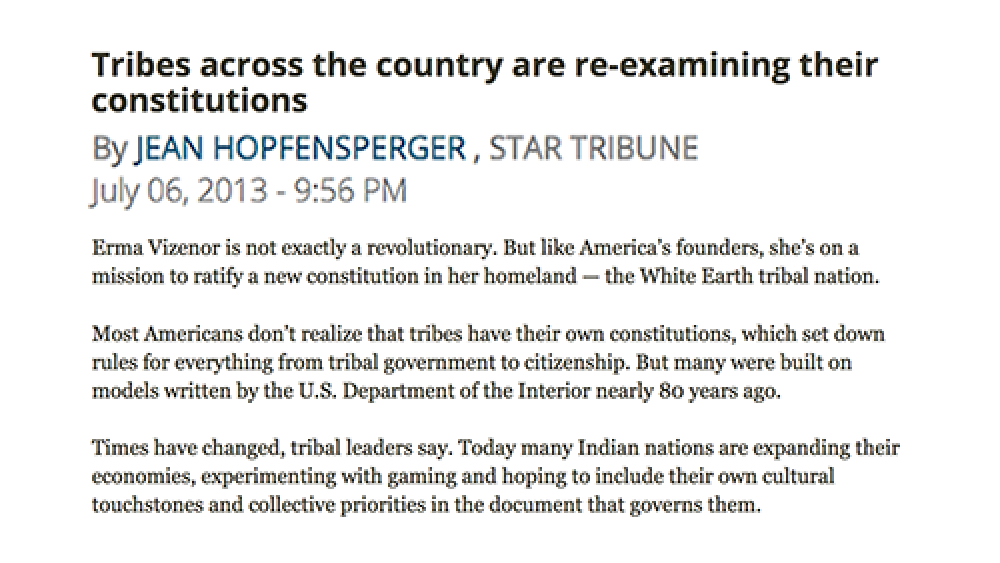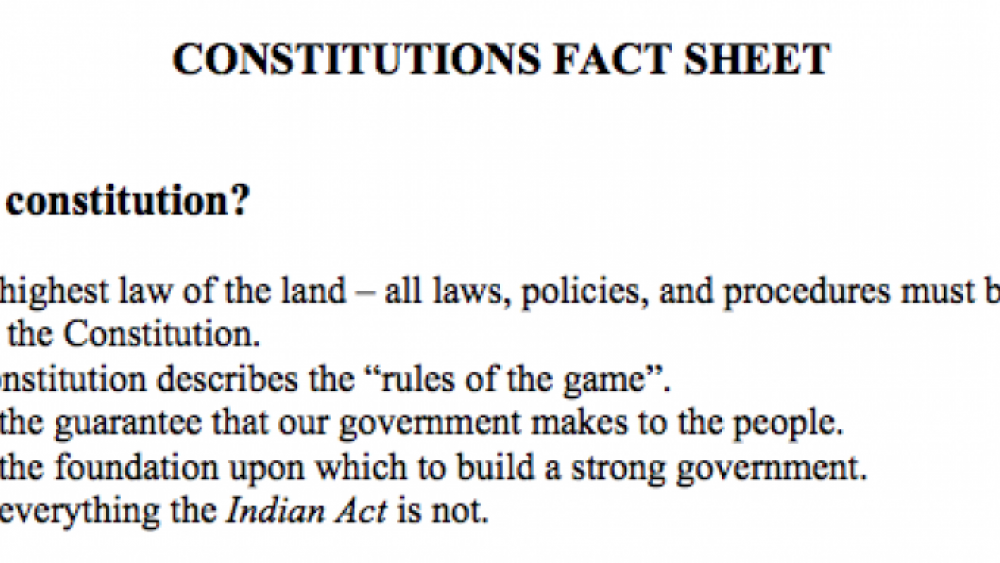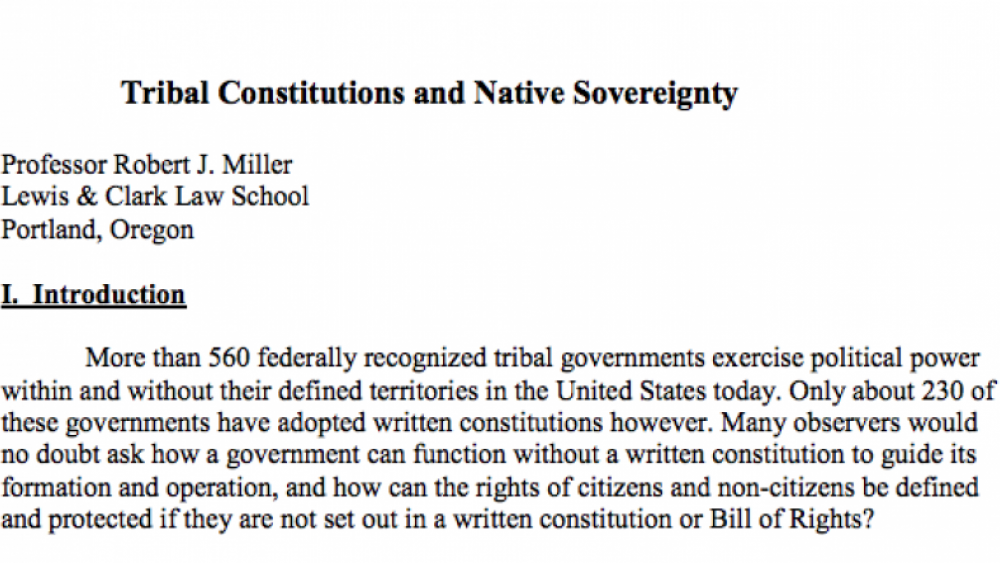Harvard Project on American Indian Economic Development Co-Director Joseph P. Kalt provides a definition of 'constitutions' in the context of nation building.
Additional Information
Kalt, Joseph P. "Constitutions: Critical Components of Native Nation Building." Native Nations Institute for Leadership, Management, and Policy. University of Arizona. Tucson, Arizona. 2012. Lecture.
Transcript
“One of the points, I’ll say it a couple of times I’m sure -- this word ‘constitution’ is kind of a quintessential sort of western European idea. I learned about it in high school here in Tucson, Arizona in high school civics. I learned all about the constitution. Right? But many nations in the world don’t even have written constitutions, and yet they have constitutions: fundamental systems of organizing ourselves, or any community, for making those community decisions that allow us hopefully to move toward shared goals. And so I’m going to talk about constitutions in a quite broad way. I’m not talking about it just in the form of my high school civics textbook, but rather much more broadly about the fundamental systems of governing that people adopt. I was teaching last week a session very much like this in El Paso with the Tigua tribe in El Paso, Texas -- Ysleta del Sur [Pueblo]. And they’re one of the traditional Pueblos. They don’t have a written constitution. And I posed the question to them, ‘Do you have a constitution?’ And this is all the tribal council and city managers, and they got in a big argument. ‘No, we don't have a constitution!’ ‘Yes, we do have a constitution!’ And what it was it about, well they eventually said, ‘We do have a constitution. We have a very fundamental law in our nation about how we're going to run things. We’ve never had to write it down because everybody knows it. But we know how we select people who are going to lead.’ And many nations in the world don’t have written constitutions. Very successful places. Israel doesn't have a written constitution. Great Britain doesn’t have a written constitution. Navajo Nation doesn’t have a written constitution. Fundamental laws are in place, but nothing you would hold up as the constitution. So when I’m talking constitutions today, I want you to really recognize we’re talking about -- whether written down, whether embedded in deep traditional culture, whether sitting on somebody’s computer, or just in ceremony -- what we’re talking about is the fundamental systems of organizing and governing a self-determined community.”



